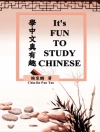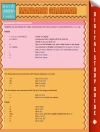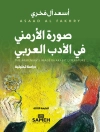Making Out in Indonesian is a fun, accessible and thorough Indonesian phrasebook and guide to the Indonesian language as it’s really spoken.
Kamu sangat menarik! Bisa kita ketemu lagi?—(You’re very attractive! Shall we meet again?) Answer this correctly in Indonesian and you may be going on a hot date. Incorrectly, and you could be hurting someone’s feelings or getting a
slap! Indonesian classes and textbooks tend to spend a lot of time rehearsing for the same fictitious scenarios but chances are while in Indonesia you will spend a lot more time trying to make new friends or start new romances—something you may not be prepared for.
If you are a student, businessman or tourist traveling to Indonesia and would like to have an authentic and meaningful experience, the key is being able to speak like a local. This friendly and easy-to-use Indonesian phrasebook makes this possible.
Making Out in Indonesian has been carefully designed to act as a guide to modern colloquial Indonesian for use in everyday informal interactions—giving access to the sort of catchy Indonesian expressions that aren’t covered in traditional language materials. Each expression is written in Indonesian so that in the case of difficulties the book can be shown to the person the user is trying to communicate with.
This Indonesian phrase book includes:
- A guide to pronouncing Indonesian words correctly.
- Explanations of basic Indonesian grammar.
- Complete Indonesian translations.
- Useful and interesting notes on Indonesian language and culture.
- Lots of colorful, fun and useful expressions not covered in other phrasebooks.
Titles in this unique series of bestselling phrase books include:
Making Out in Chinese, Making Out in Indonesian, Making Out in Thai, Making Out in Korean, Making Out in Hindi, Making Out in Japanese, Making Out in Vietnamese, Making Out in Burmese, Making Out in Tagalog, Making Out in Hindi, Making Out in Arabic, Making Out in English, More Making Out in Korean, and More Making Out in Japanese.












